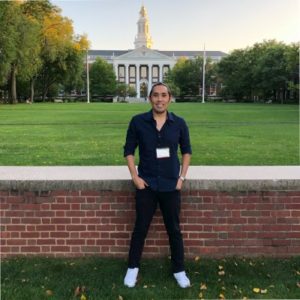New center aims to set policy agenda for family caregivers
As home- and community-based settings increasingly become settings for long-term care, a new center will study ways to improve support services for family members who care for older adults and those with disabilities through new policies and research. The National Institute on Disability and Rehabilitation Research and the Administration for Community Living have awarded a five-year, $4.3 million grant to the University of Illinois at Chicago (UIC) to establish a new, multi-institutional center to study the needs of such caregivers.
More than 65 million family caregivers in the U.S. help 12 million seniors and people with disabilities to live at home, according to the university, saving the federal government billions of dollars in the process. “These caregivers aren’t getting much support in return,” however, principal investigator Sandy Magaña, professor of disability and human development at UIC, said in a press release. “By gaining a better understanding of the experiences of family caregivers—the services they use, and the needs and challenges they face—we can help set policy and research agendas that will lead to improvements in the health and well-being of individuals with disabilities of all ages, racial and ethnic backgrounds and the family members that help support them,” she added.
Currently, Magaña said, support services for caregivers of the elderly and caregivers of people with disabilities are isolated from each other. “There are lots of good interventions and ideas within the aging and disability ‘silos’ that can and should be exchanged,” she added, and that exchange would help experts devise new, combined support programs that would strengthen both.
The center will conduct several major research projects over the next five years and develop a strategic plan to prioritize research for federal funding. Interviews with family caregivers will inform the agenda the researchers set for policymakers, Magaña said. Reserachers also will study trends in caregiving—such as self-directed care—as well as the experiences of families using managed care.
Co-principal investigators on the grant are Tamar Heller, professor and head of disability and human development at UIC, and Joe Caldwell, director of long-term services and support policy at the National Council on Aging (NCOA). Collaborating institutions include the Lurie Institute for Disability Policy at Brandeis University, the National Resource Center for Participant-Directed Services at Boston College, the RTC on Community Living at the University of Minnesota, the National Alliance for Caregiving and the NCOA. Organizational partners include The Arc, Easter Seals and the Sibling Leadership Network.
I Advance Senior Care is the industry-leading source for practical, in-depth, business-building, and resident care information for owners, executives, administrators, and directors of nursing at assisted living communities, skilled nursing facilities, post-acute facilities, and continuing care retirement communities. The I Advance Senior Care editorial team and industry experts provide market analysis, strategic direction, policy commentary, clinical best-practices, business management, and technology breakthroughs.
I Advance Senior Care is part of the Institute for the Advancement of Senior Care and published by Plain-English Health Care.
Related Articles
Topics: Articles












